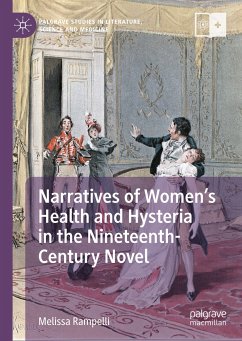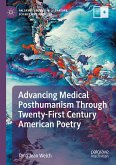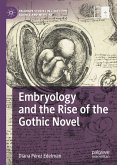Narratives of Women's Health and Hysteria in the Nineteenth-Century Novel looks extensively at hysteria discourse through medical and sociological texts and examines how this body of work intersects with important cultural debates to define women's social, physical, and mental health. The book sketches out prominent shifts in cultural reactions to the idea of diffused agency and the prized model of the interiorized, individual person capable of self will and governance. Melissa Rampelli takes up the work of Jane Austen, Charles Dickens, George Eliot, and Thomas Hardy, showing how the authors play with and manipulate stock literary figures to contribute to this dialogue about the causes and cures of women's hysterical distress.
Dieser Download kann aus rechtlichen Gründen nur mit Rechnungsadresse in A, B, BG, CY, CZ, D, DK, EW, E, FIN, F, GR, HR, H, IRL, I, LT, L, LR, M, NL, PL, P, R, S, SLO, SK ausgeliefert werden.









